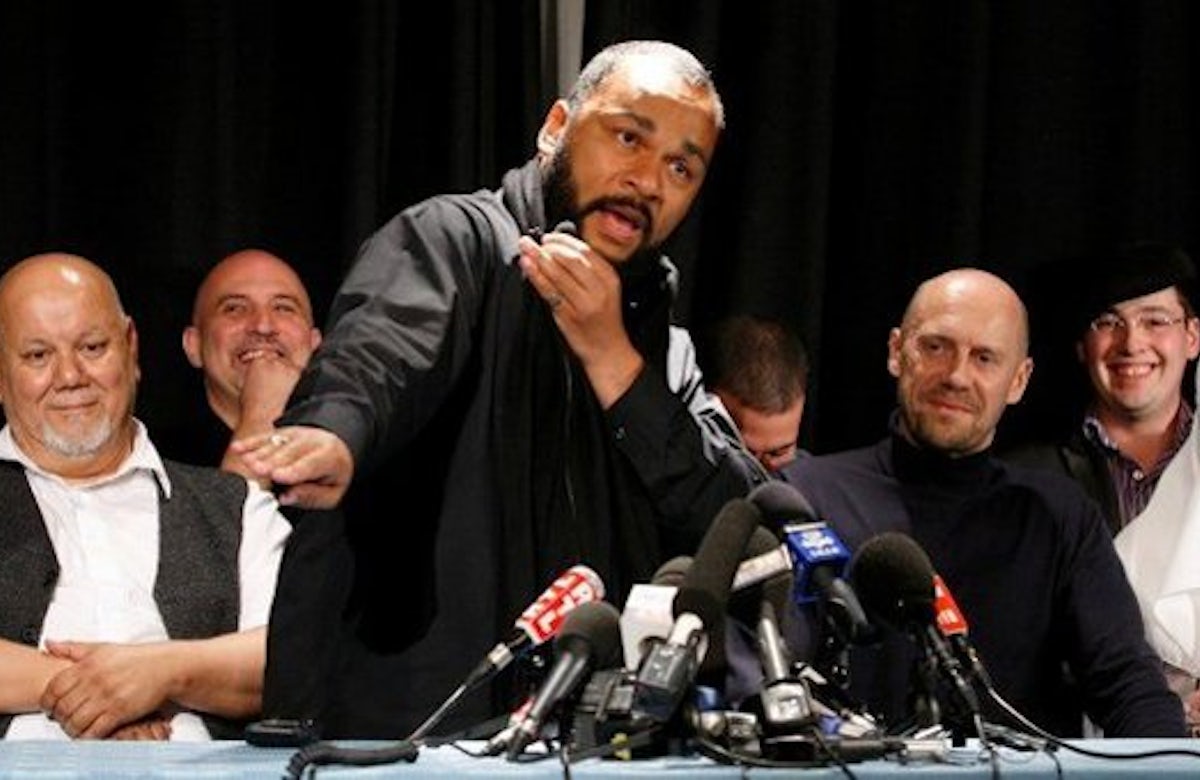French authorities have begun clamping down on the controversial comedian Dieudonné M’bala M’bala, who has been accused of insulting the memory of Holocaust victims and threatening public order with anti-Semitic jibes. Authorities in the city of Nantes barred the opening date in the upcoming Dieudonné tour, which was set for Thursday, hours after similar shows were banned by mayors in Marseille, Bordeaux and Tours.
 "I am calling on all representatives of the state, particularly its prefects, to be on alert and inflexible," President François Hollande said, referring to regional officials charged with maintaining law and order in France. "No one should be able to use this show for provocation and to promote openly anti-Semitic ideas," he told a meeting of senior government officials in Paris.
"I am calling on all representatives of the state, particularly its prefects, to be on alert and inflexible," President François Hollande said, referring to regional officials charged with maintaining law and order in France. "No one should be able to use this show for provocation and to promote openly anti-Semitic ideas," he told a meeting of senior government officials in Paris.
Interior Minister Manuel Valls said racial and anti-Semitic remarks in Dieudonné's show were legal infractions and "no longer belong to the artistic and creative dimension". In a three-page circular letter sent on Monday to prefects and mayors across France, Valls said that the show contained "disgraceful and anti-Semitic words toward Jewish personalities or the Jewish community" and "virulent and shocking attacks on the memory of victims of the Holocaust." The Socialist politician noted in his letter that Dieudonné was already convicted nine times of anti-Semitic offenses.
Much of the present controversy surrounds the ‘quenelle’ gesture - holding one hand to the chest or shoulder, with the other extended rigidly downward, like a lowered Nazi salute. Dieudonné's companion Noémie Montagne has patented the gesture, as well as the use of its name for beverages, a television network and a public relations company.
Lawyers for the comedian, who is of Cameroonian origin, said they would take legal action to defend him. "Freedom of expression is not at the whim of governments or a comedian," they said in a statement announcing the launch of legal complaints for defamation and invasion of privacy. They accused the Socialist government of using the issue to rally voters ahead of municipal and European elections in coming months where widespread anger at unemployment is seen fueling a strong vote for the far-right National Front. Its leader, Marine Le Pen, has striven to distance the party from its earlier anti-Semitic leanings. She told the newspaper 'Le Figaro' that she was "shocked" by Dieudonné but criticized the government for exaggerating the importance of the affair.
World Jewish Congress Vice-President Roger Cukierman, the head of the French Jewish umbrella body CRIF, told ‘France Info’ radio on Tuesday morning that he was satisfied that the French government had now acted. He called on French citizens to speak out against Dieudonné’s anti-Semitism. “No, France is not an anti-Semitic country, but therefore, one has to put a stop to [Dieudonné’s] actions and prosecute him wherever possible.” Cukierman is among eight persons and institutions against who Dieudonné has threatened a defamation suit.






